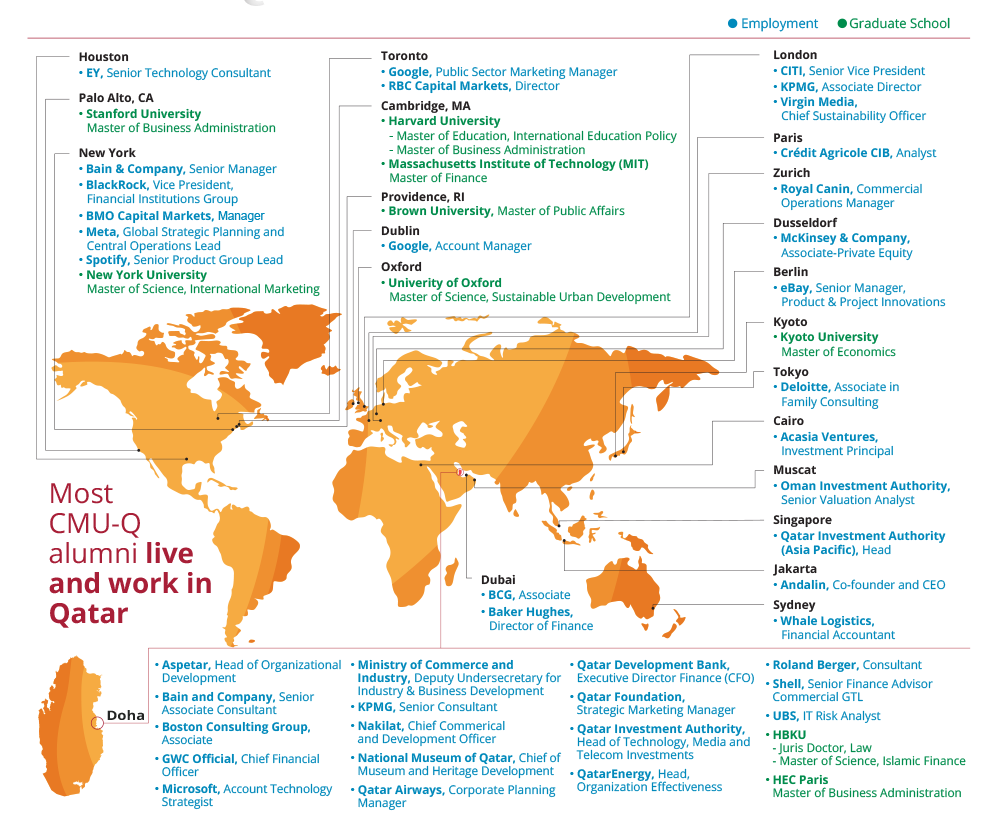
Internships
Business administration students can put their theoretical knowledge into practice through internships in industry and government.
Learn more
Academic Enrichment
Business administration students at CMU-Q can choose from an extensive slate of academic enrichment opportunities that enhance their work in the classroom.
Learn more
Arts and Sciences
Arts and Sciences courses include mandatory and elective classes in a wide range of academic areas, including Arabic studies, chemistry, English, history, math, psychology and physics.
Learn moreMeet the faculty
Faculty members include experts in fintech, algorithmic trading, mathematical/statistical modeling, Islamic finance, entrepreneurship, political economy, revenue management, supply chain, business applications of AI, machine learning and deep learning.

Iman Adeinat
Associate Teaching Professor, Operations Management
Serkan Akguc
Associate Area Head, Business AdministrationAssociate Teaching Professor, Finance

Andres Castano Zuluaga
Assistant Teaching Professor, Economics and Analytics
Hussein Fadlallah
Assistant Teaching Professor, Management
Fuad Farooqi
Area Head, Business AdministrationTeaching Professor, Finance

Ki-won Haan
Assistant Teaching Professor, Organizational Behavior
Maher Hakim
Distinguished Career Professor, Business Administration
Agustín Indaco
Associate Teaching Professor, Economics
Sameer Mathur
Associate Teaching Professor of Marketing and Business Technologies
Patrick McGinnis
Distinguished Career Professor, Business Communication
Veli Safak
Associate Teaching Professor, Economics




